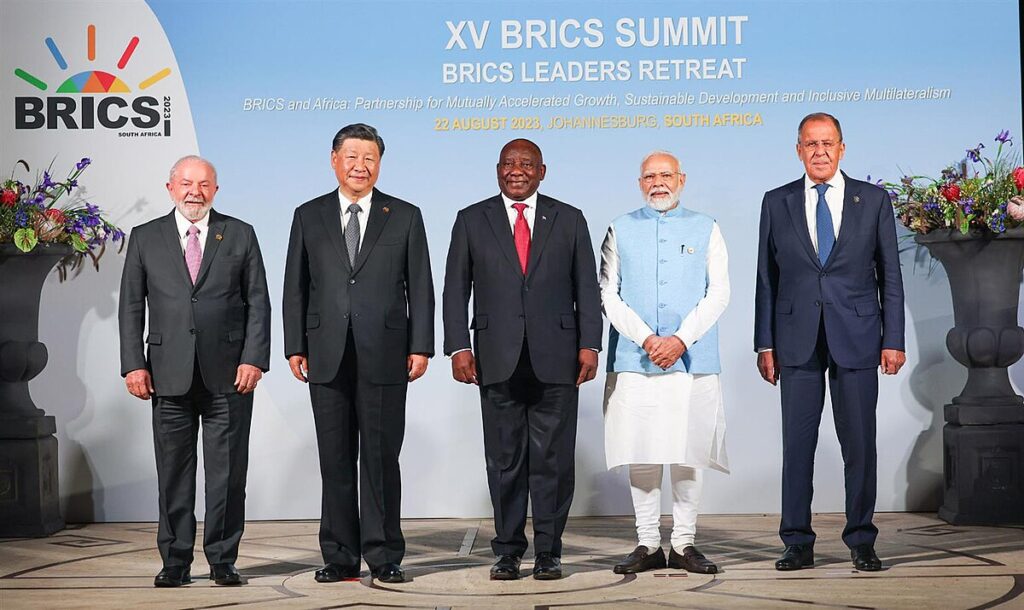BRICS Challenging US Dominance

The BRICS alliance, consisting of Brazil, Russia, India, China, and South Africa, represents a formidable bloc with significant potential to challenge the economic dominance of the USA and its traditional Western allies. This alliance brings together countries with vast populations, extensive natural resources, and rapidly growing economies. Here are some of the potentials and ways the BRICS alliance can challenge the economic dominance of the USA and its allies, along with its potential impact on Africa:
- Economic Powerhouse: Collectively, the BRICS nations account for a substantial portion of the world’s GDP. Their combined economic strength allows them to exert influence on global economic policies, such as advocating for reforms in international financial institutions like the IMF and World Bank to give emerging economies a greater say.
- Trade and Investment: The BRICS countries are major players in global trade and investment. Strengthening intra-BRICS trade and investment ties can reduce their dependence on Western markets and foster economic growth within the alliance.
- Alternative Financial Systems: BRICS nations have discussed the creation of alternative financial institutions, such as the New Development Bank (NDB), which can provide an alternative source of funding for infrastructure projects and development, reducing reliance on Western-dominated financial institutions.
- Geopolitical Influence: The BRICS alliance has the potential to shape international geopolitics by advocating for a multipolar world order, challenging the dominance of Western powers in global decision-making.
- Technology and Innovation: BRICS countries are investing heavily in research, development, and innovation. Collaboration in technology and knowledge exchange can boost their competitiveness on the global stage.
- Impact on Africa: The BRICS alliance can have a significant impact on Africa. African countries have increasingly turned to BRICS nations for trade, investment, and development partnerships. BRICS can offer African nations alternative sources of capital and technology, potentially reducing their reliance on traditional Western donors.

However, challenges such as differing political systems, economic disparities among BRICS members, and geopolitical tensions must be managed for the alliance to realize its full potential. Additionally, the impact on Africa could be both positive, in terms of development opportunities, and negative if BRICS interests compete or exacerbate local conflicts.
In conclusion, the BRICS alliance holds substantial potential to challenge the economic dominance of the USA and its allies through economic cooperation, geopolitical influence, and alternative financial systems. Its impact on Africa could be transformative, depending on the extent of collaboration and alignment of interests between BRICS nations and African countries.





